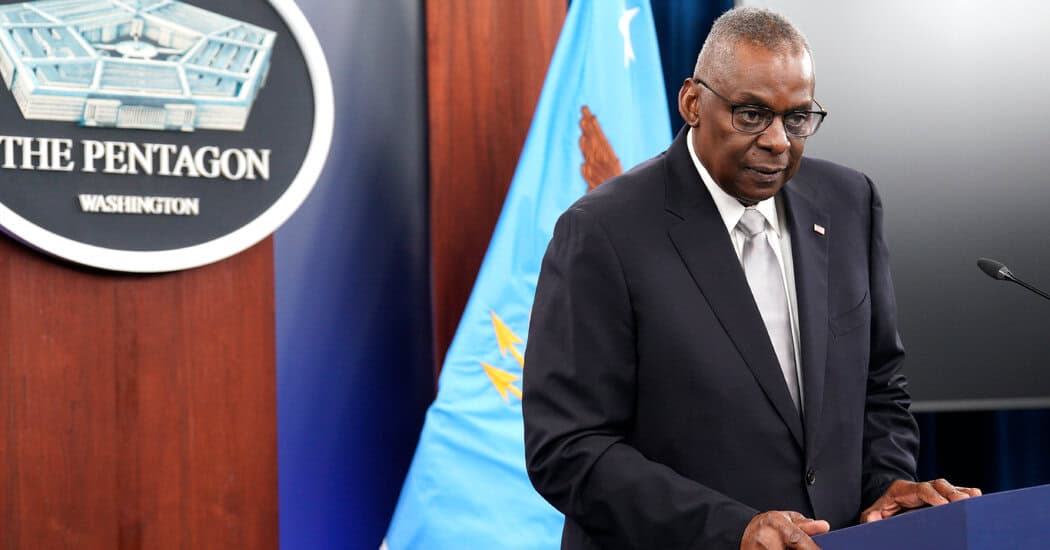
Austin, Speaking by Video, Reiterates U.S. Support for Ukraine
Defense Secretary Lloyd J. Austin III, speaking by video, told defense ministers meeting in Brussels that the United States would maintain its support for Ukraine, but he made no mention of a multibillion-dollar aid package that has yet to gain Congressional approval.
Mr. Austin delivered his remarks in a five-minute address via video link to a meeting of some 50 countries from the U.S.-led Ukraine Defense Contact Group, which marshals military aid for the country.
“We will continue to dig deep to provide Ukraine with both short-term and long-term support,” said Mr. Austin, who had canceled his trip to Brussels because of health issues. Seated behind a desk with the flags of the United States and Ukraine behind him, he added:“The countries of this coalition, including the United States, support Ukraine because it’s the right thing to do and because it is in our core national security interests.”
Almost two years after Russia launched its full-scale invasion, Ukraine faces what military analysts say is likely to be a difficult year, with Moscow attempting advances on the battlefield and without an immediate infusion of aid from Washington, its biggest donor.
A $95 billion emergency aid package has been stymied in Congress since its introduction in October. On Tuesday, the Senate passed the package, which included aid for Ukraine, Israel and Taiwan with bipartisan support, but the measure faces significant Republican opposition in the House.
The legislation would set aside $60.1 billion for the government in Kyiv and bring the total U.S. investment in the war effort to more than $170 billion. It would also provide money for Israel and Taiwan as well as humanitarian aid for civilians in conflict zones.
Mr. Austin had announced on Monday that he was canceling his trip to Brussels, where he had been scheduled to meet in person with NATO and European counterparts.
Mr. Austin, 70, was admitted to a hospital on Sunday where he was treated for discomfort and concern from a bladder issue related to prostate cancer surgery in December, according to the Defense Department. He said that he had returned to the hospital for nonsurgical procedures, the third such visit in two months. “I am in good condition and my cancer prognosis remains excellent,” he said. He was released on Tuesday.
On Dec. 22, Mr. Austin underwent what is known as a prostatectomy, the removal of all or part of the prostate gland. He was criticized at the time for failing to immediately disclose his illness and absence to the White House, a breach of protocol that baffled officials across the government, including at the Pentagon. He was hospitalized for two weeks in January and returned to the Pentagon on Jan. 29.
